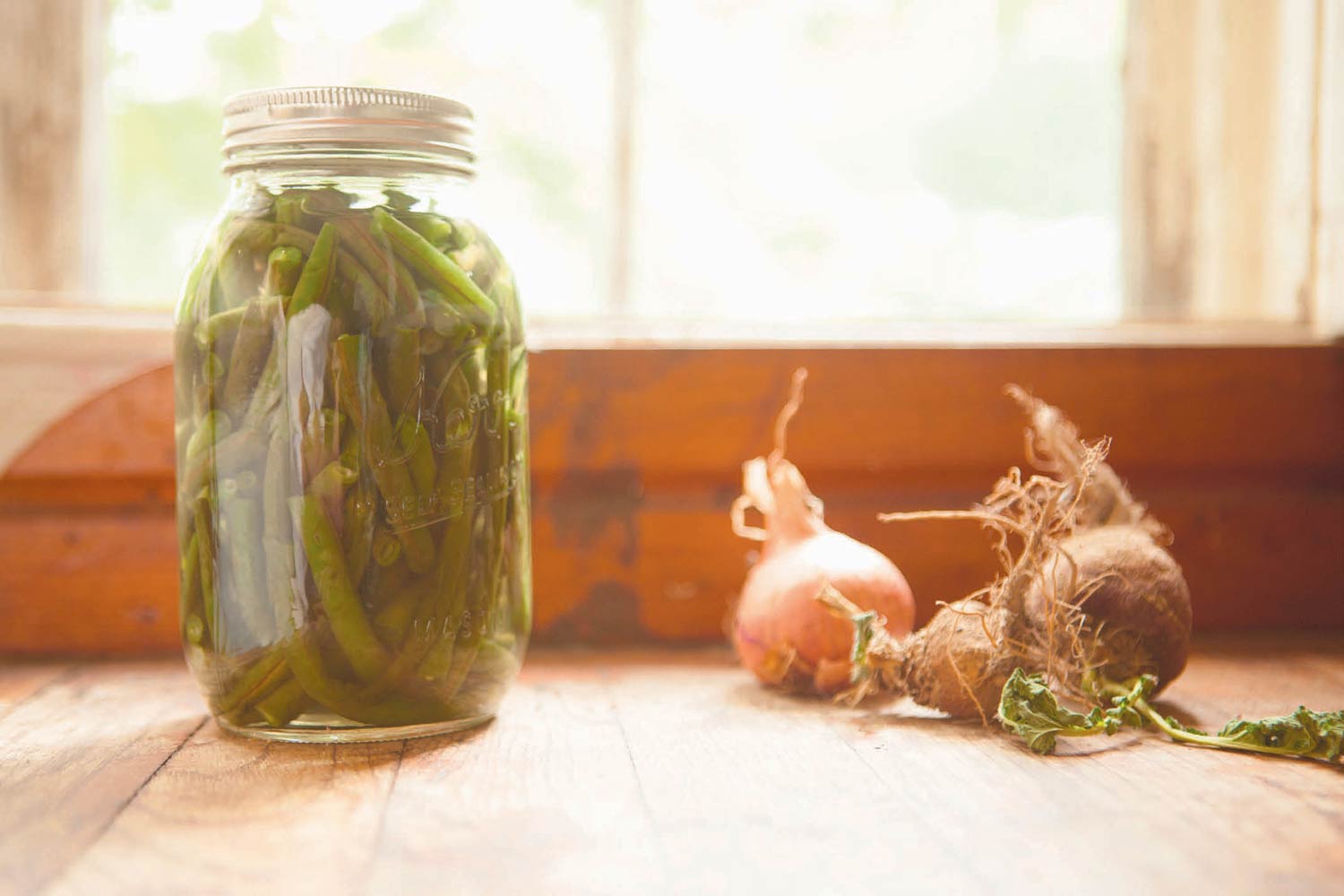Preserving Hope
It is late summer evening. As I stand in my kitchen, barefoot and waiting for the last load of stewed tomatoes in the pressure canner to finish, I feel a generational memory pulling at me. I recall watching my grandmother make chow-chow and chili sauce when I was a young child, then assisting my mother with making jelly, pickles, and putting up green beans when I was a bit older.
Inevitably, I am reminded of my late teens. We were poorer than at any other time in my childhood. My father was very ill and unable to work. My mother was his caregiver, leaving her also unable to work. Resources were scarce.
I recall a late spring Sunday morning – more specifically, it was food pantry Sunday at our church. Parishioners brought food items, which were given in turn to a family in need or a food pantry.
Mother took one of the few remaining jars of green beans from the cupboard. It did not occur to her to go without anything to offer, despite the fact we were hanging by a thread. As it turned out, our family was the recipient of the food donations that month. It is a memory indelibly etched in my mind.
Arkansas, and Ozarkansas in particular, has a very rich history and tradition of food preservation. Home preservation is making a big resurgence as more and more of us become dedicated to knowing where our food comes from. Our region is blessed with a temperate climate and a long growing season, which has assisted in facilitating the availability of fresh produce throughout the late spring, summer, and fall through community gardens and programs such as Feed Communities donations.
Many gardeners face a glut of produce and are happy to donate it. But, in order to truly be a sustainable model in improving food equity, we must have resources to assist in safe food preservation for those in need.
Garden bounty can be preserved in a variety of ways – fermenting cucumbers into pickles or cabbage into sauerkraut, stringing peppers to dry, and freezing, dehydrating, and canning the rainbow spectrum of vegetables and fruits. Food preservation during seasons of abundance began in the early history of mankind, and many current methods trace their beginnings back many hundreds, even thousands of years. Despite the merits of modern methods, barriers exist – and must be overcome – for those dealing with food insecurity.
The least expensive method of food preservation is to freeze vegetables such as green beans, corn, squash, and peppers. Many fruits and berries also lend themselves well to freezing. However, there are limits to the amount most low-income families can store, and frozen items are inaccessible for those that are homeless or in transitional housing.
Dehydrating is an excellent method of preserving produce and fruits, resulting in little loss of nutrients, a long shelf life, and no need for special storage techniques. They also are easily portable if a family is in transition. Dehydration techniques easily can be learned, and dehydrators can be found at many price points.
Canning fresh vegetables into nutritious blends – such as stewed tomatoes with peppers and onions, vegetable soup stock, marinara sauce, and more – can go a long way toward providing the foundation for a family meal. Barriers can include the cost of the equipment necessary to safely can the produce, supplies such as canning jars and lids, and lack of knowledge. Safe storage of the canned produce also can be an issue, particularly for those who are in transitional forms of housing.
Pickling of vegetables and fruits can be learned easily, but the method brings with it many of the same barriers as canning for those who already have limited financial resources.
Food preservation classes are available from several resources, and the list of organizations and others offering them continues to grow.
Since the early 20th century, the University of Arkansas Cooperative Extension Service has provided resources for Arkansas through a wide array of services. These include online resources for USDA guidelines in food preservation, as well as classes in food preservation through county extension offices. Schedules vary, and there is a nominal fee for these classes.
This summer, the Arkansas Hunger Relief Alliance partnered with the Department of Food Science at the University of Arkansas to turn surplus Arkansas grown tomatoes into spaghetti sauce to be distributed via food pantries throughout the state.
Feed Communities also presents Canning Hunger classes, and a new schedule of classes in the area will be announced soon. Locations, dates and times can be found at www.feedfayetteville.org.
Ozark Natural Foods in Fayetteville offers canning and other food preservation classes at regular intervals. These classes are free of charge but do require advance registration. Their calendar of events and presentations can be found at www.onf.coop.
In researching this article and considering the many implications, it has become apparent that our greatest need lies in community-based kitchens. A community kitchen brings together skilled mentors and teachers in the preservation techniques, volunteers to assist with food preparation, donors of produce and other items needed to store the preserved food, as well as recipients who want to participate and gain skills in meeting their family's needs. As gleaning and care cropping programs such as those by Arkansas Hunger Relief Alliance and Seeds That Feed expand, the need for effective community resources to preserve this produce also will continue to grow.
I remember a jar of green beans, and I have hope.
Ozarkansas extension offices
Benton County
1204 SW 14th Street, Suite 2
Bentonville AR 72712
(479) 271-1060
Carroll County
909-B Freeman Switch Road
Berryville, AR 72616
(870) 423-2958
Madison County
222 N. Gaskill
Box 370
Huntsville, AR 72740
(479) 738-6826
Sebastian County
6700 Mahogany Ave.
Barling, AR 72923
(479) 484-7737
Washington County
2536 N. McConnell Ave.
Fayetteville, AR 72704
(479) 444-1755




